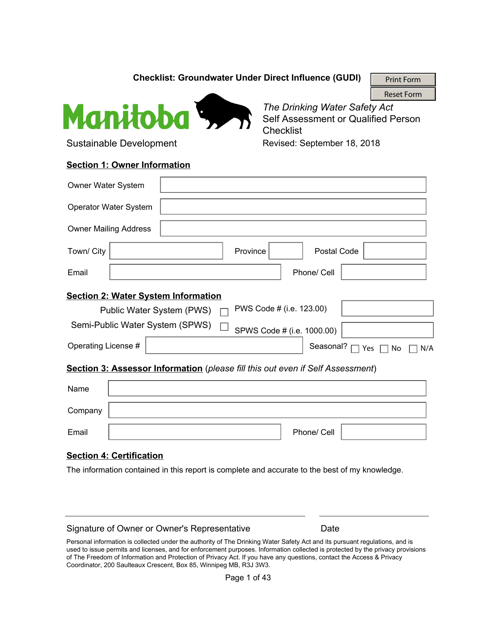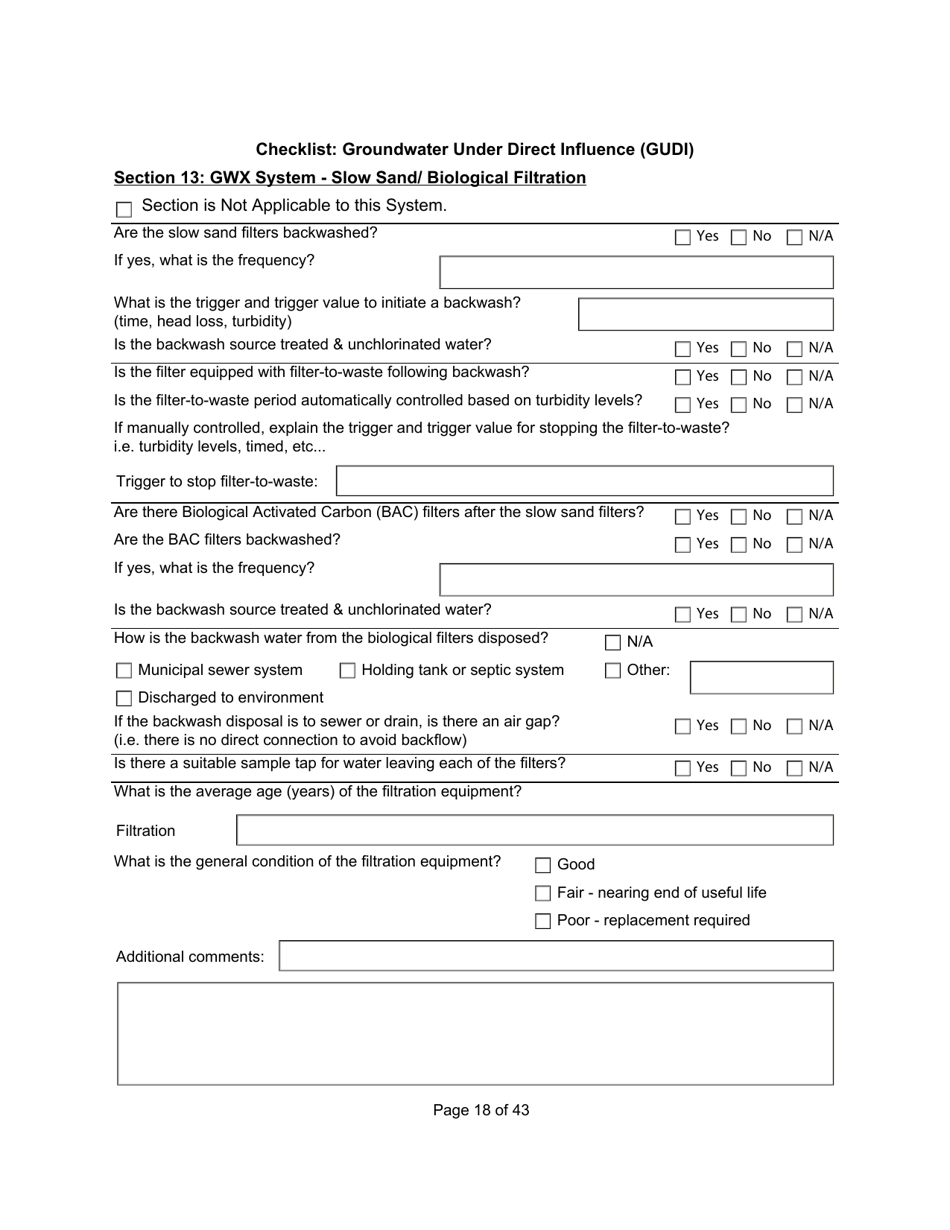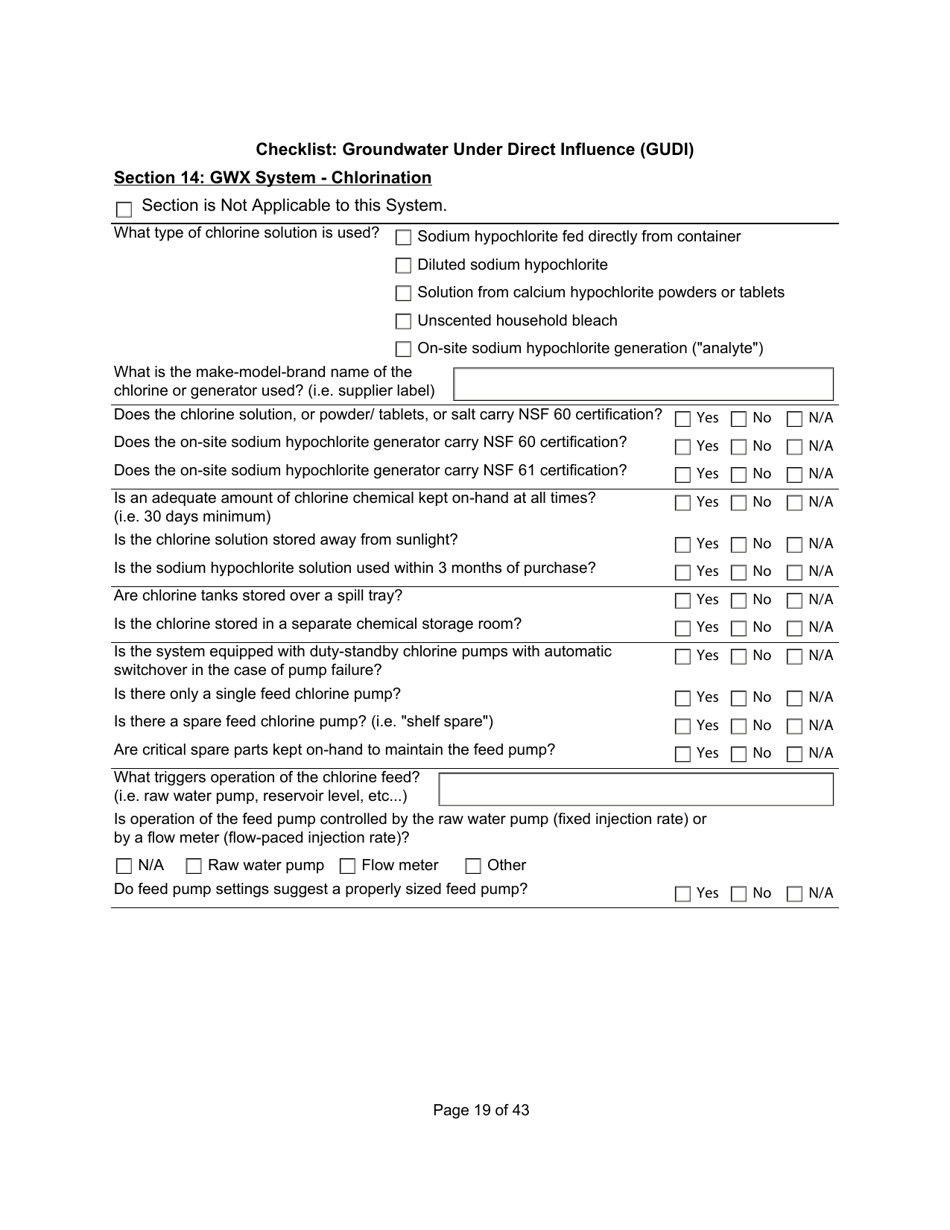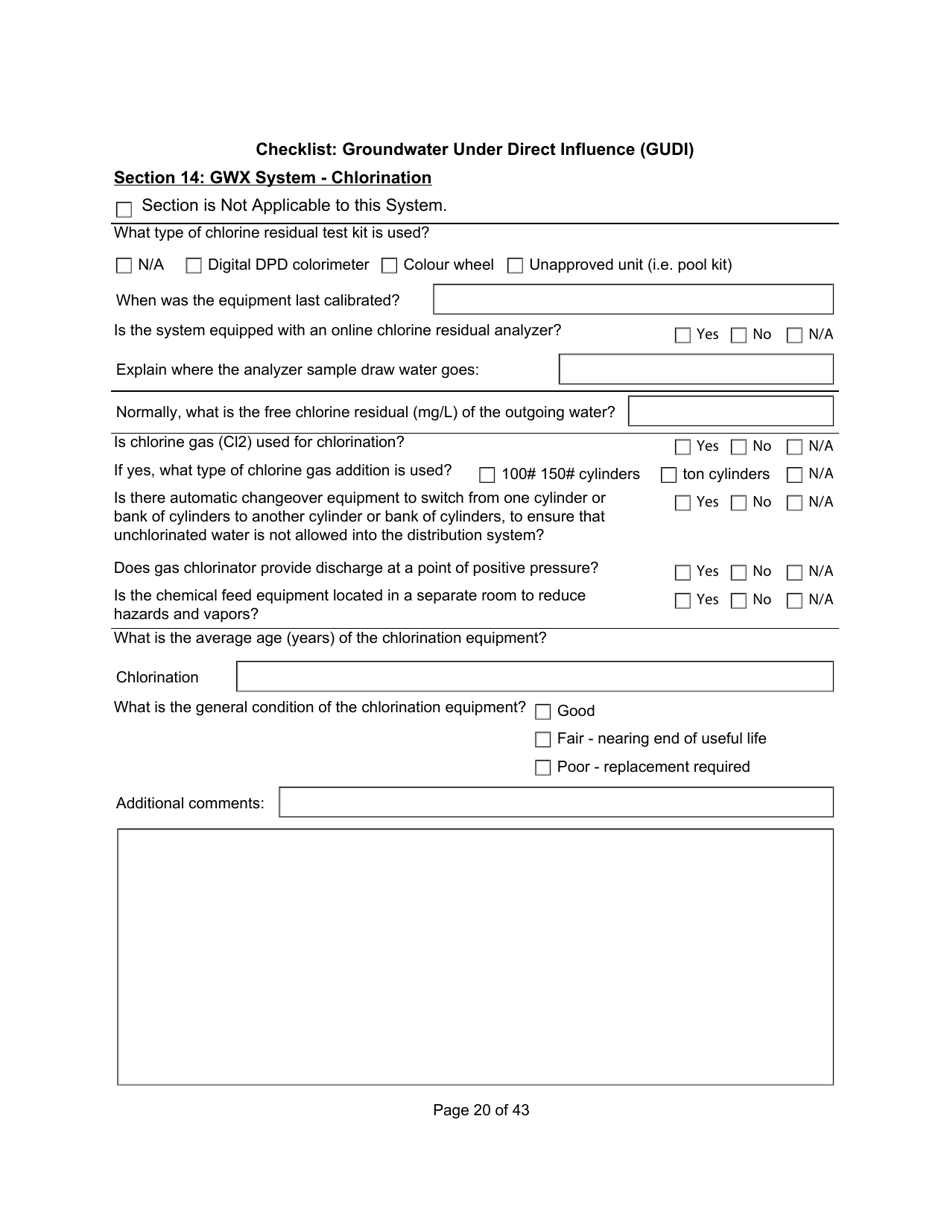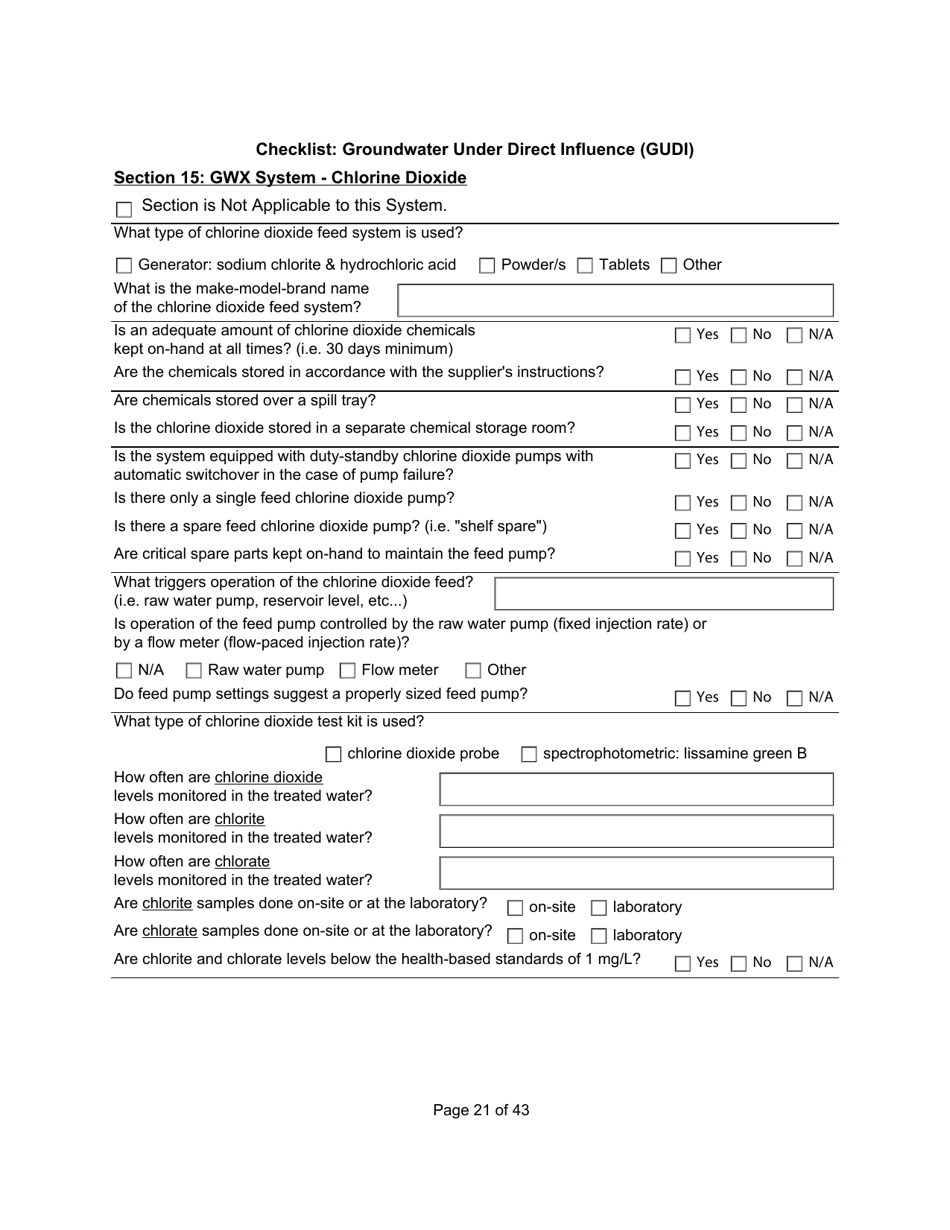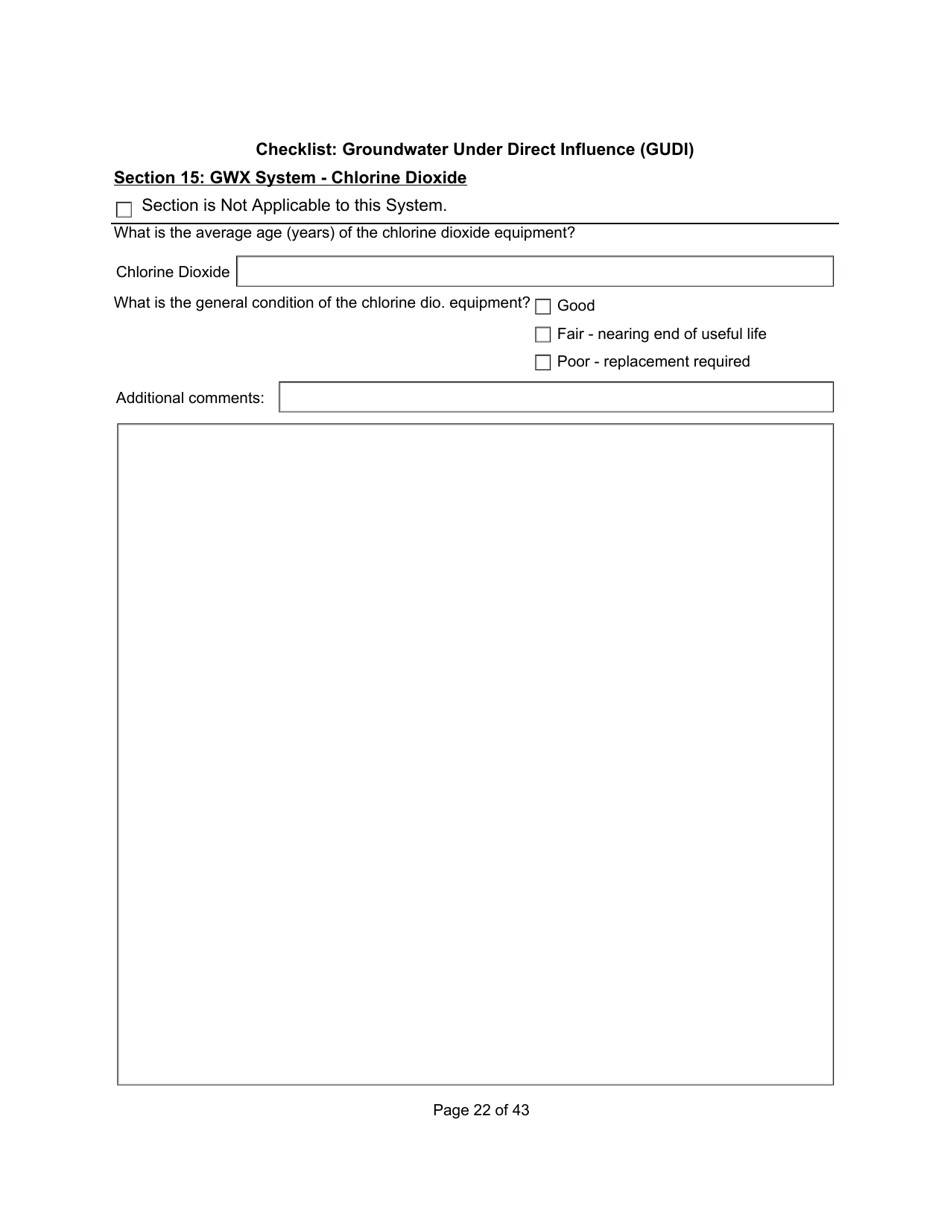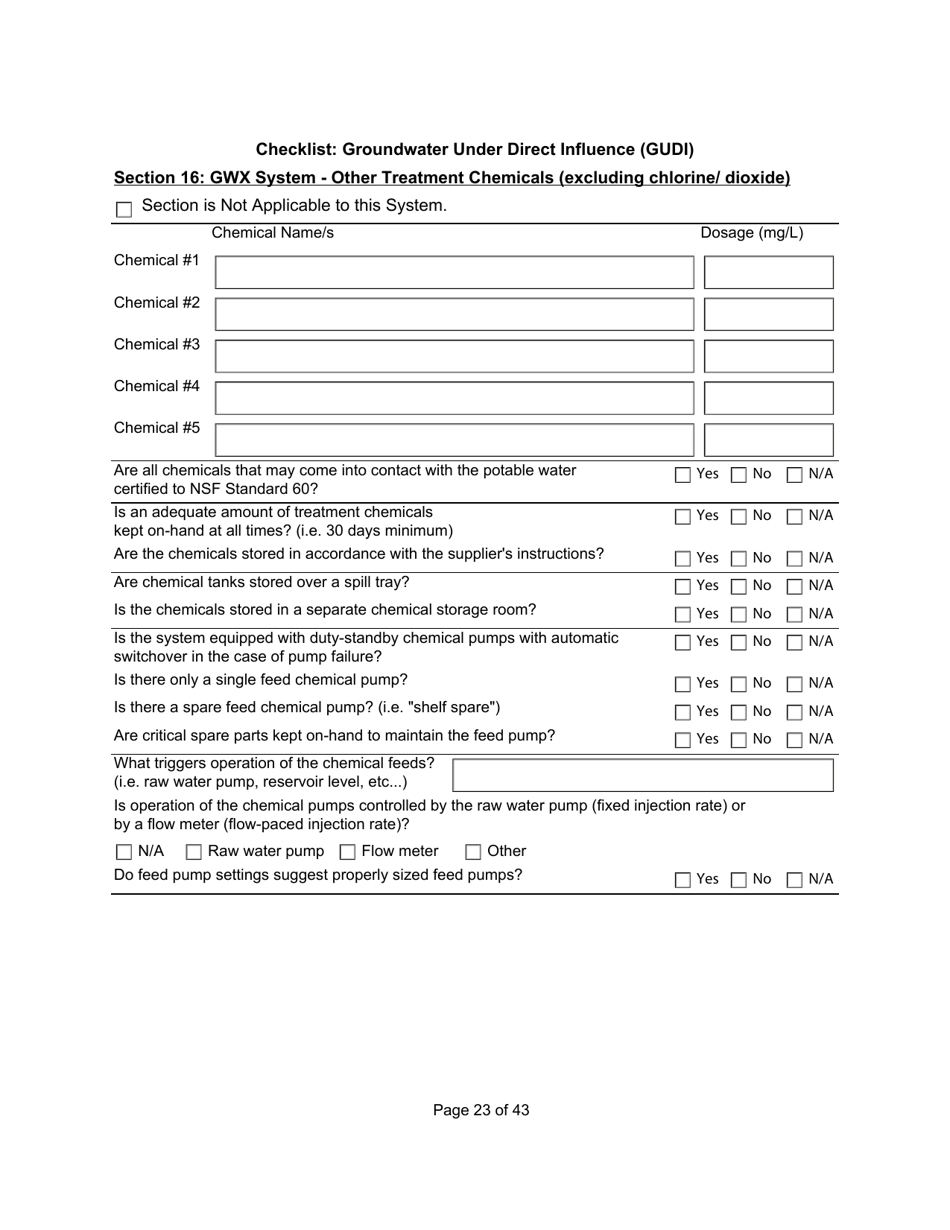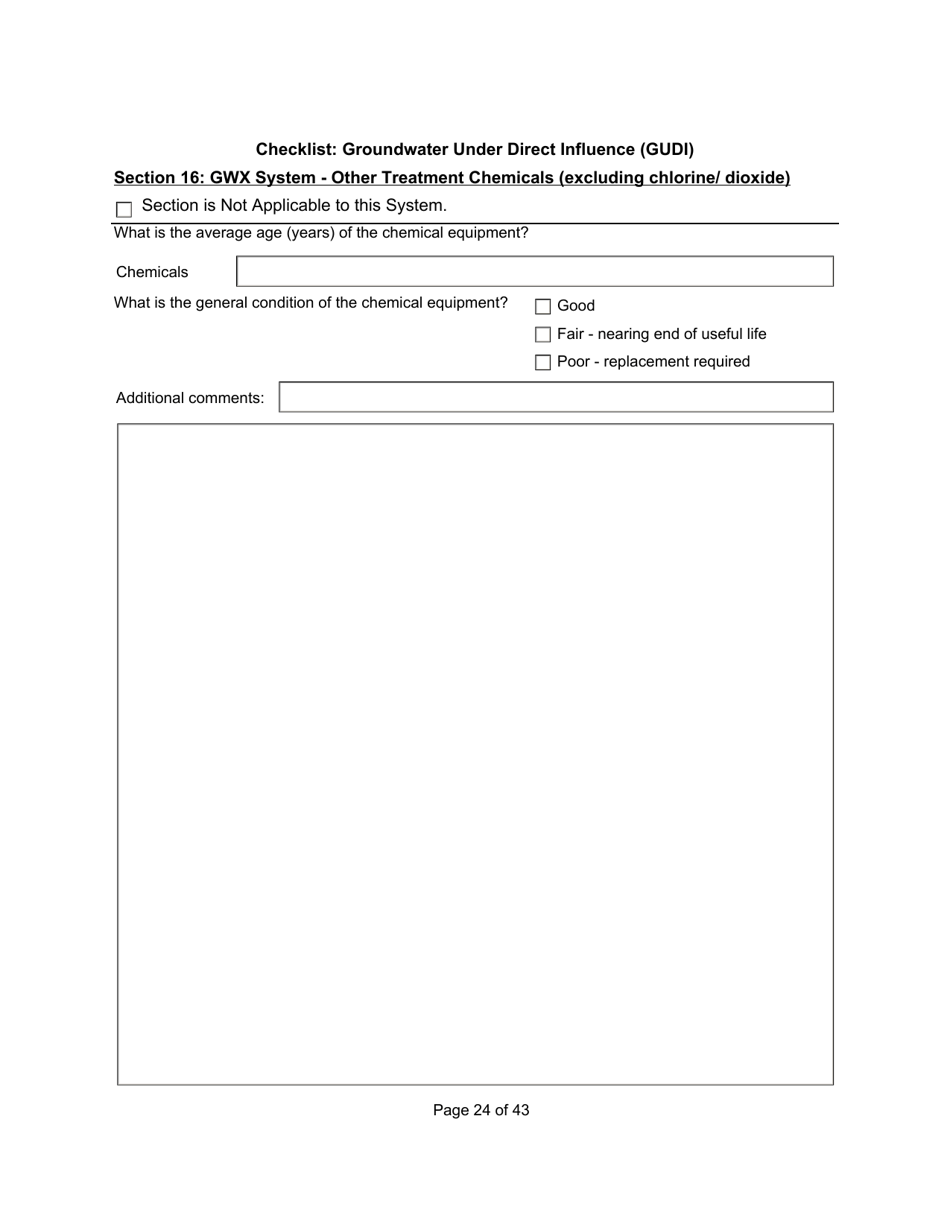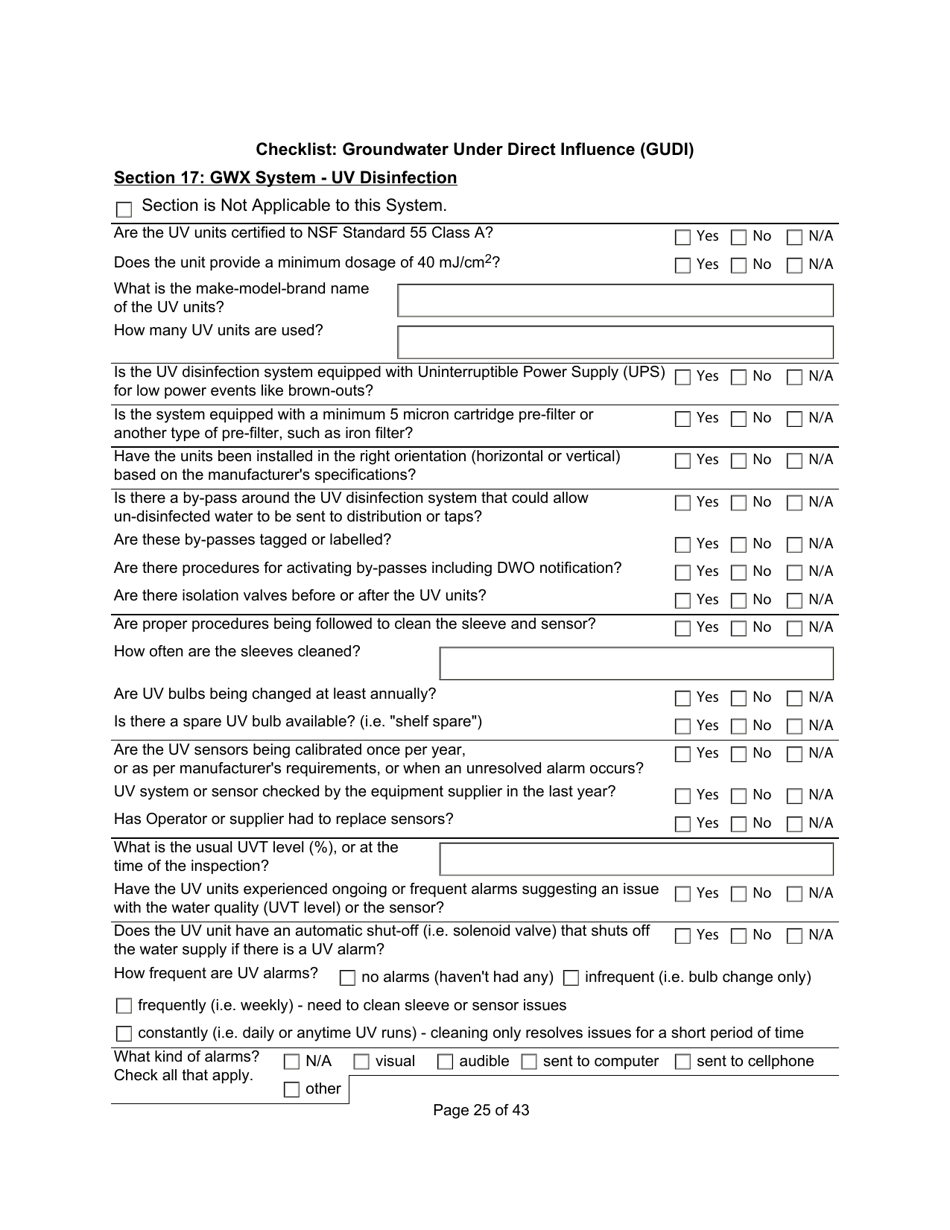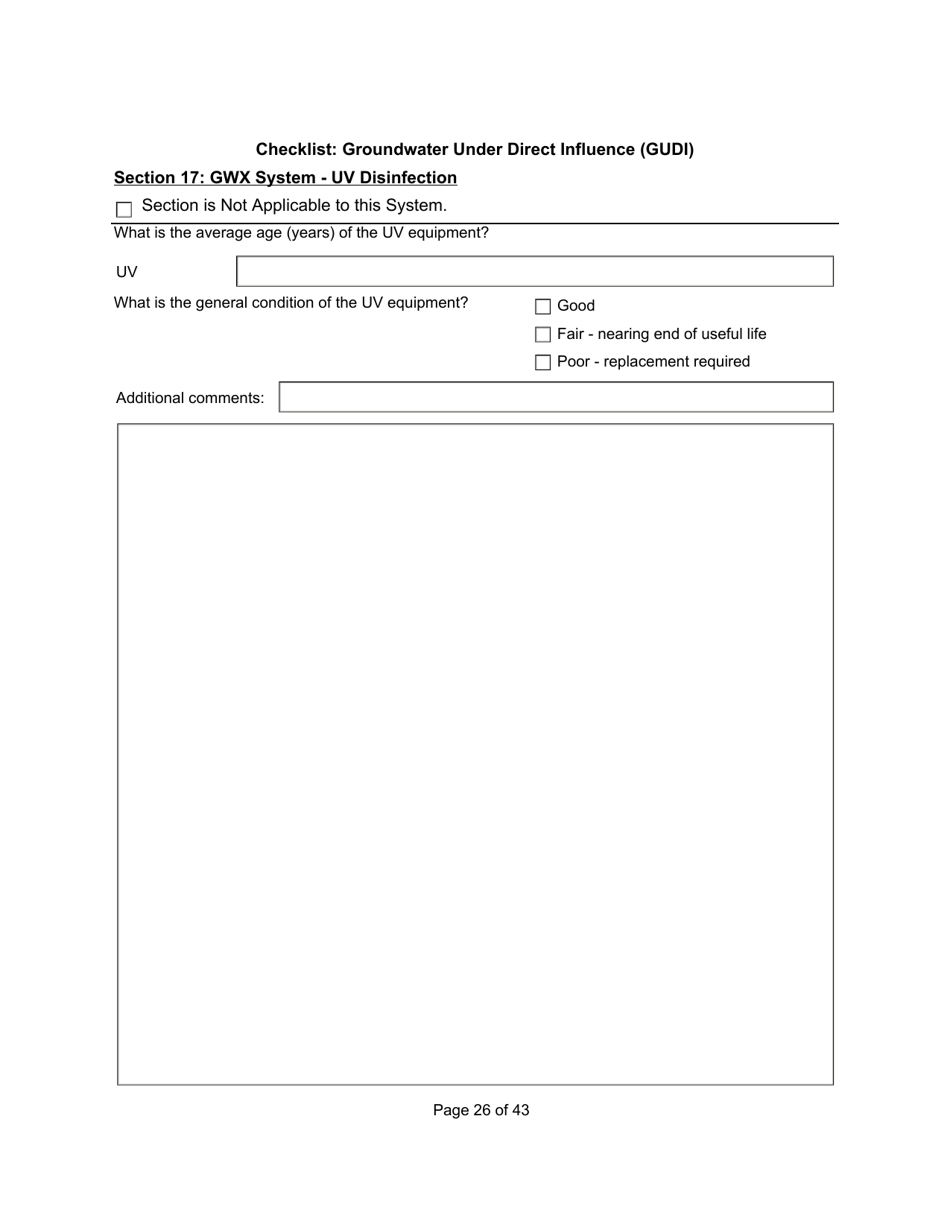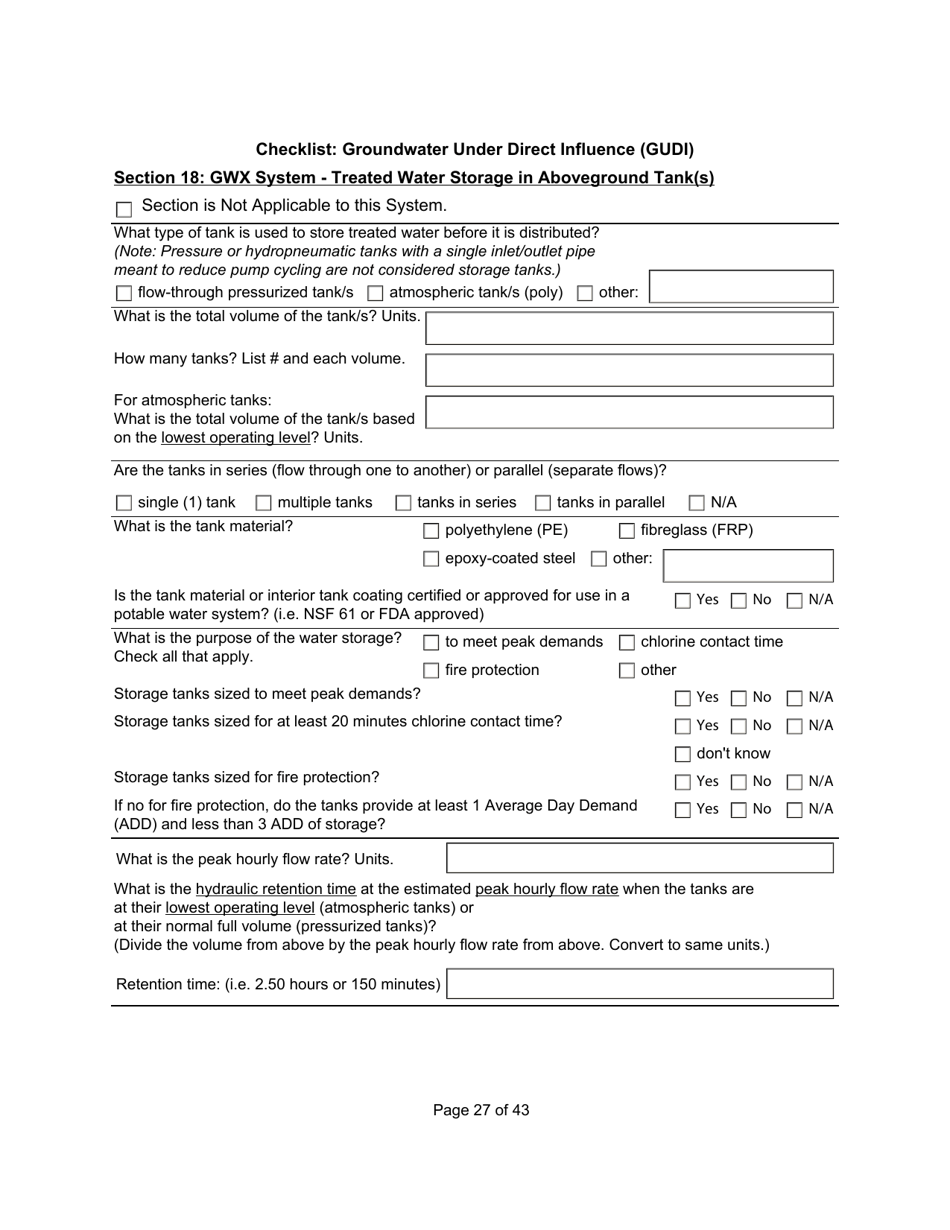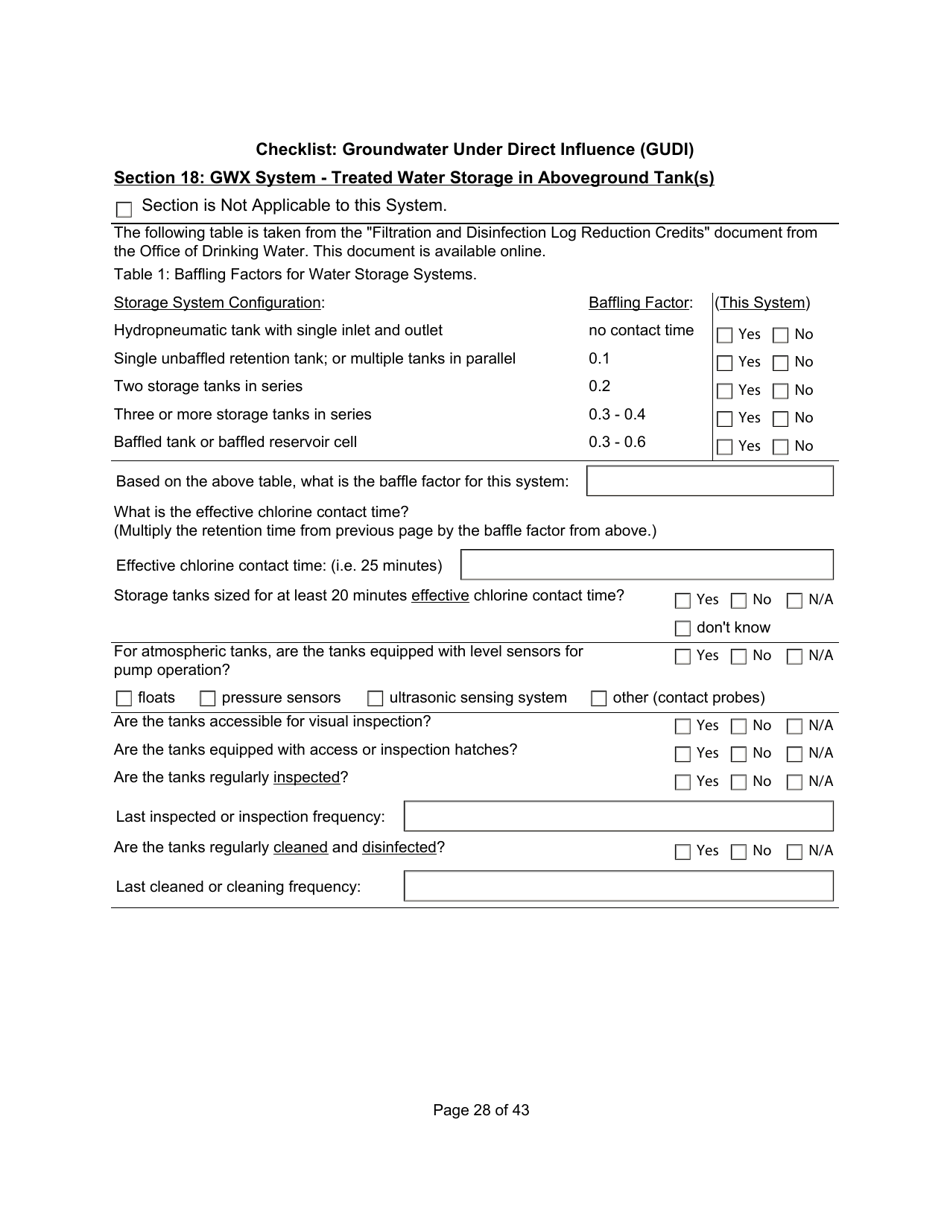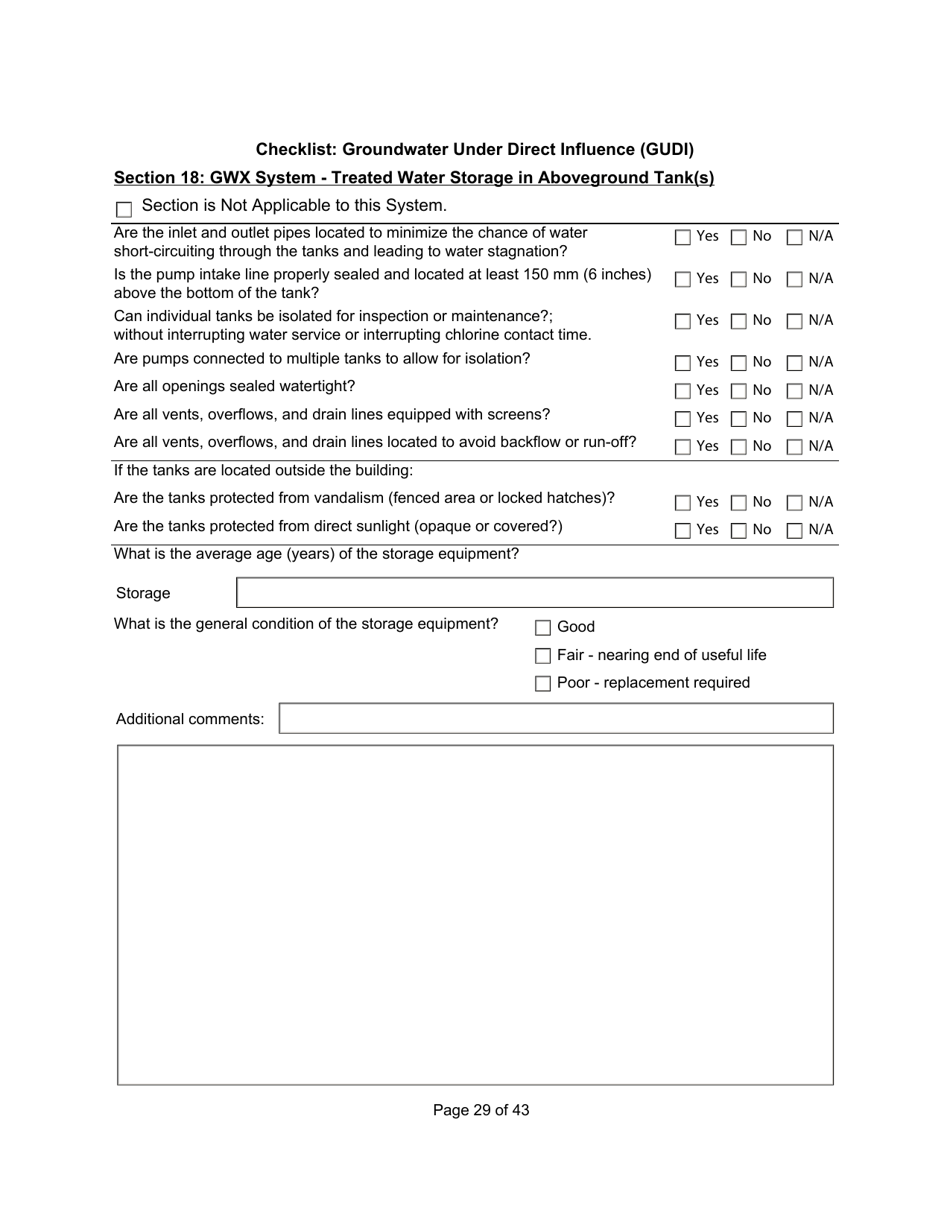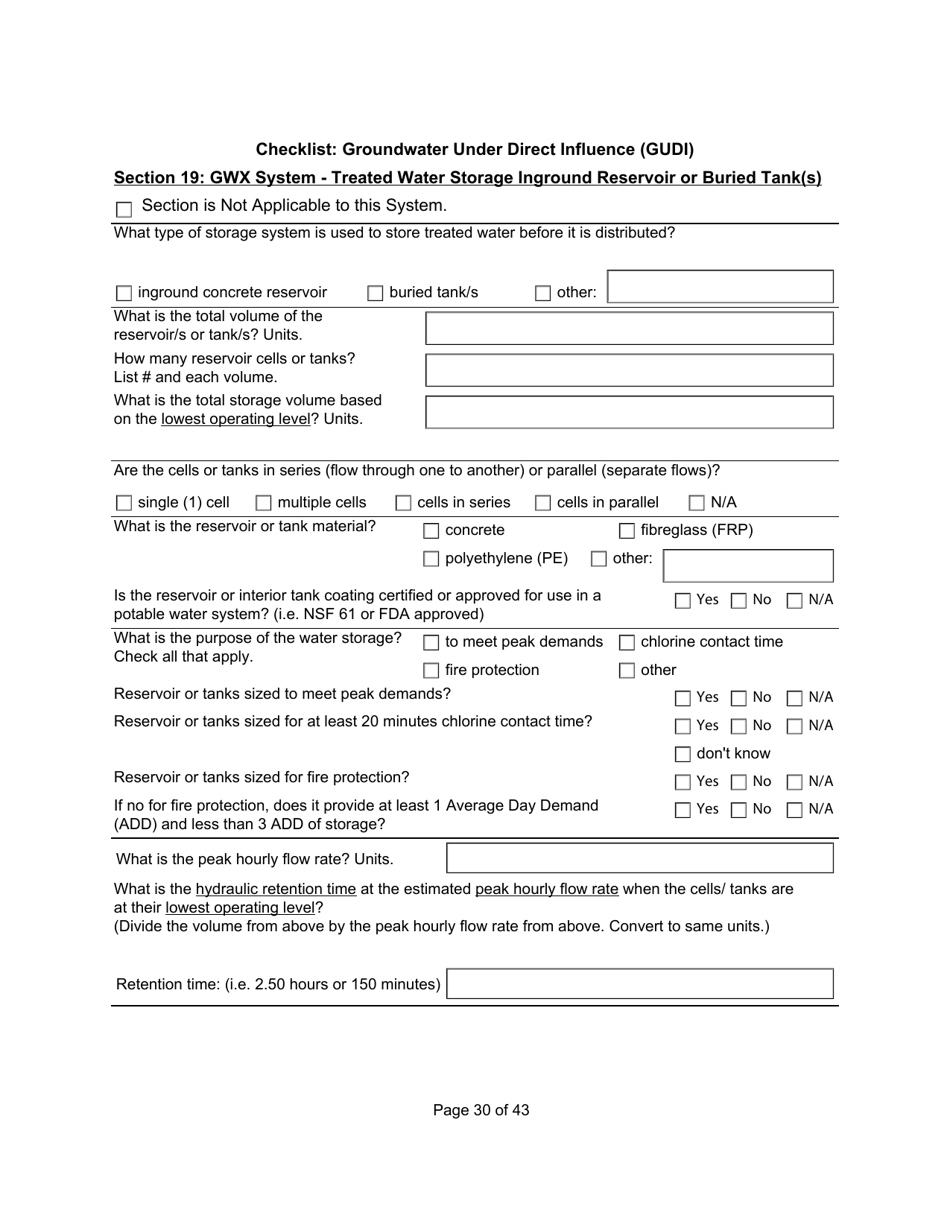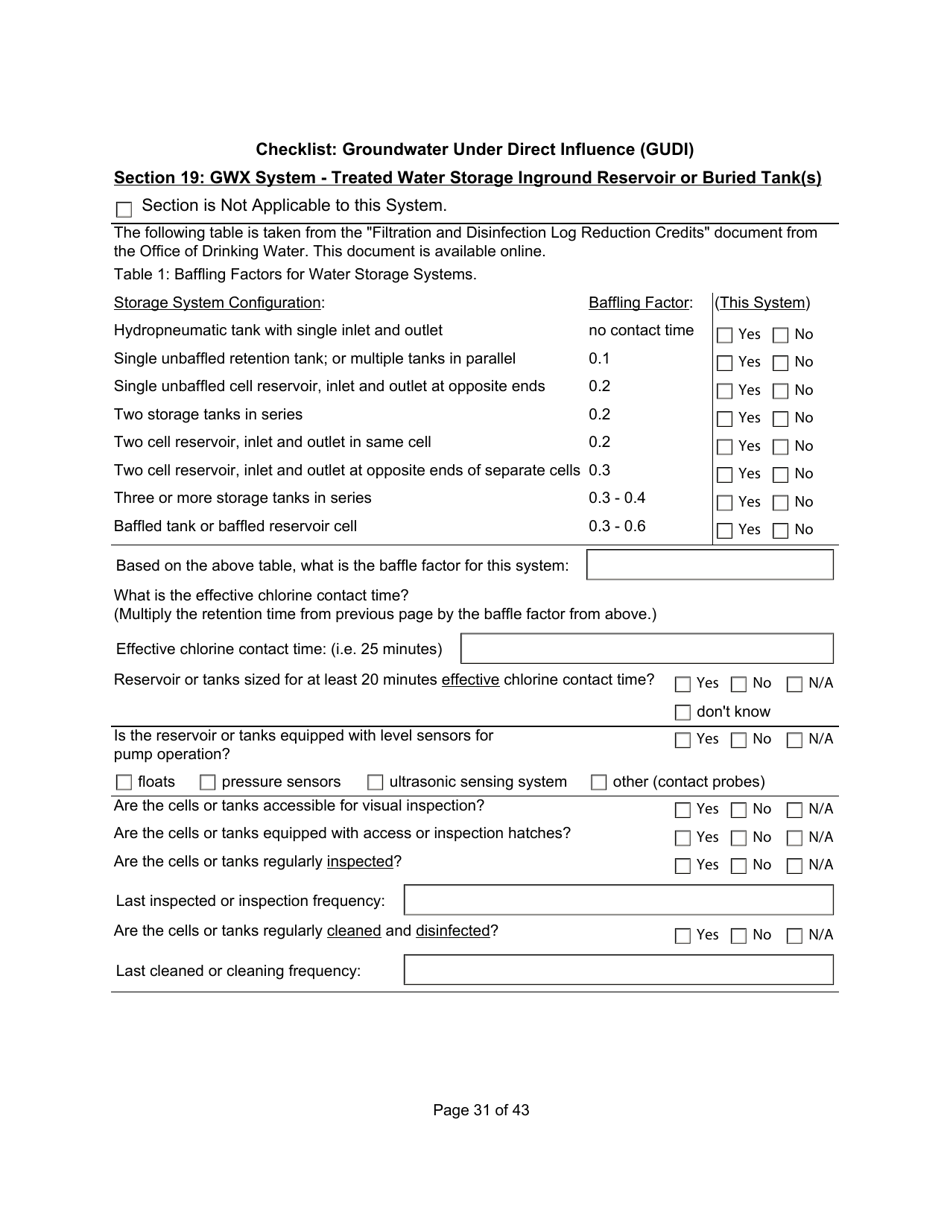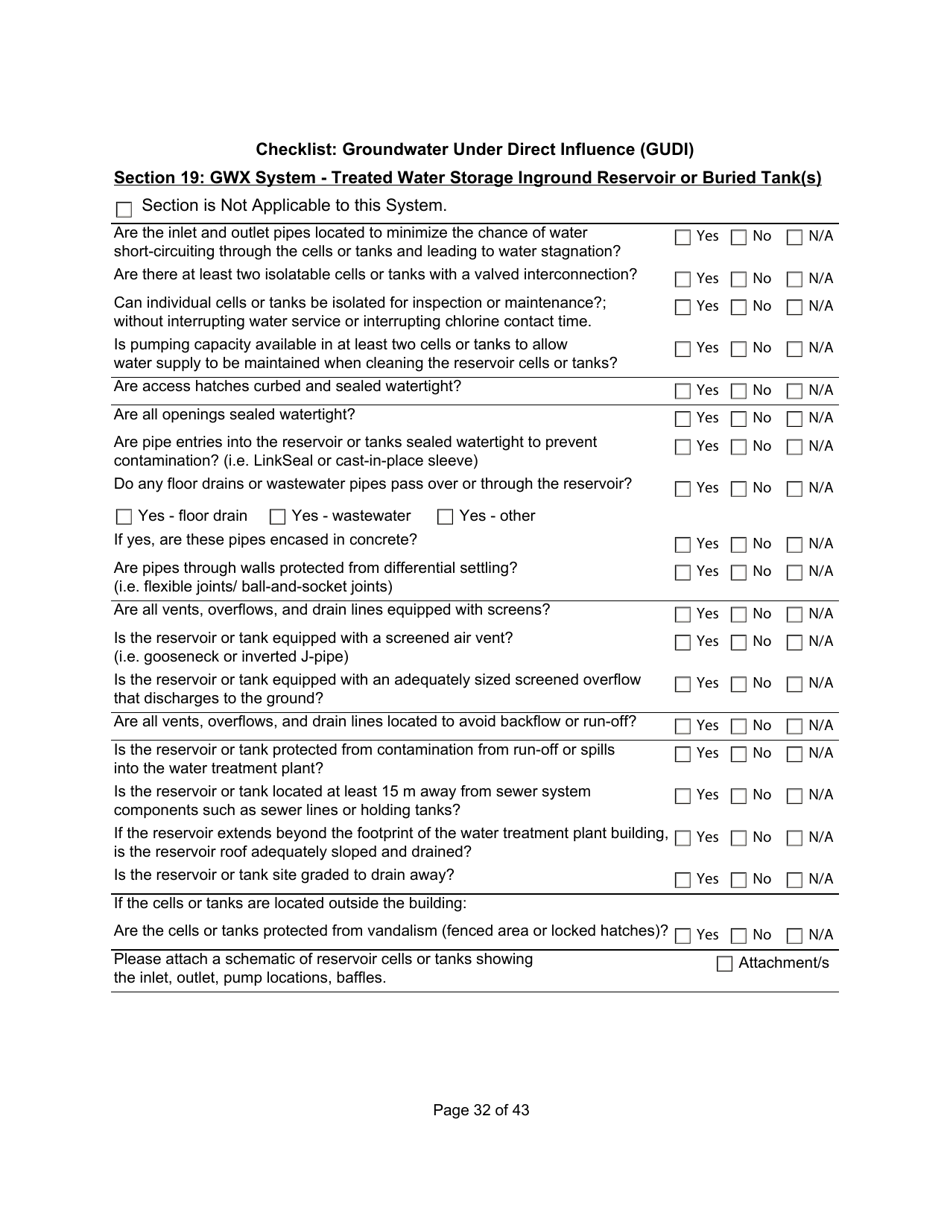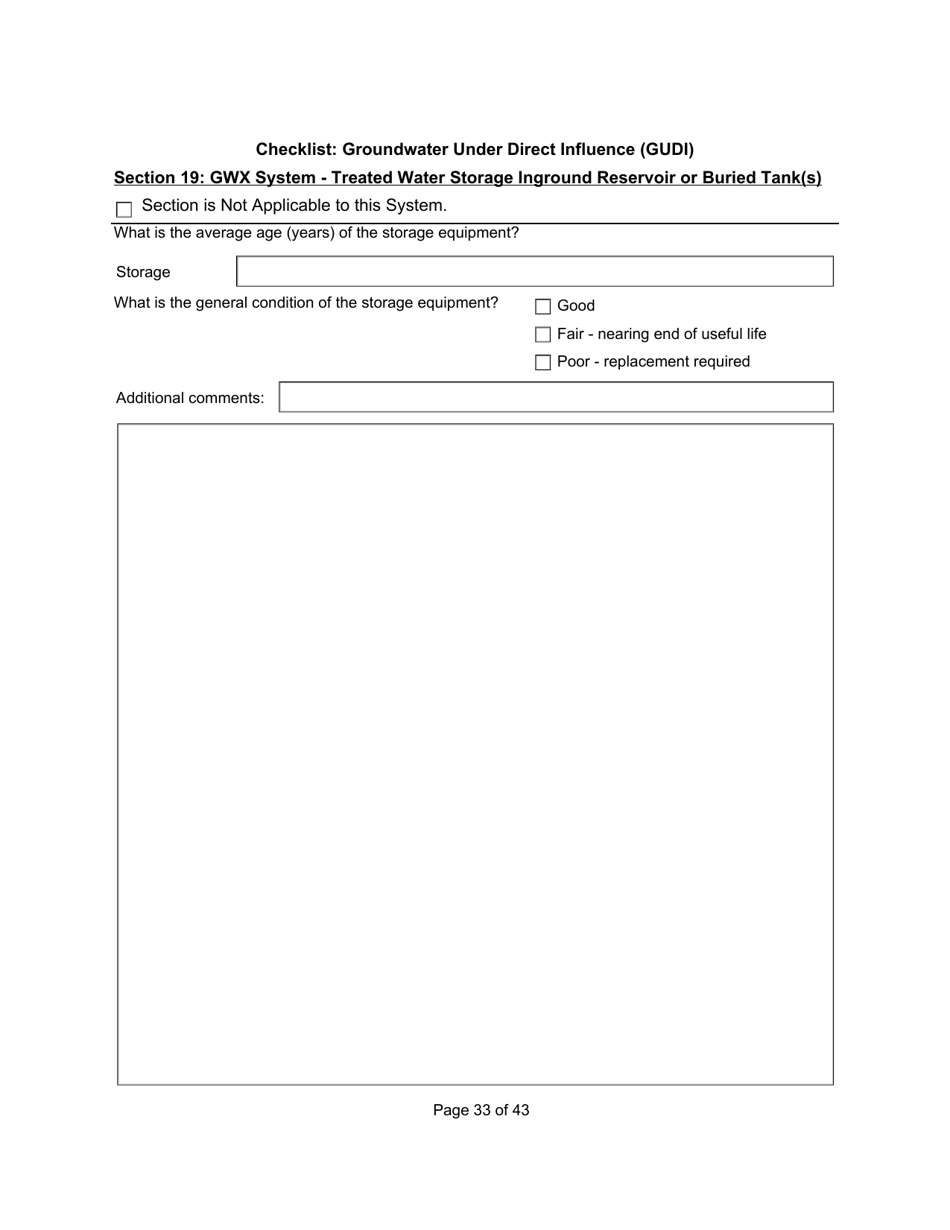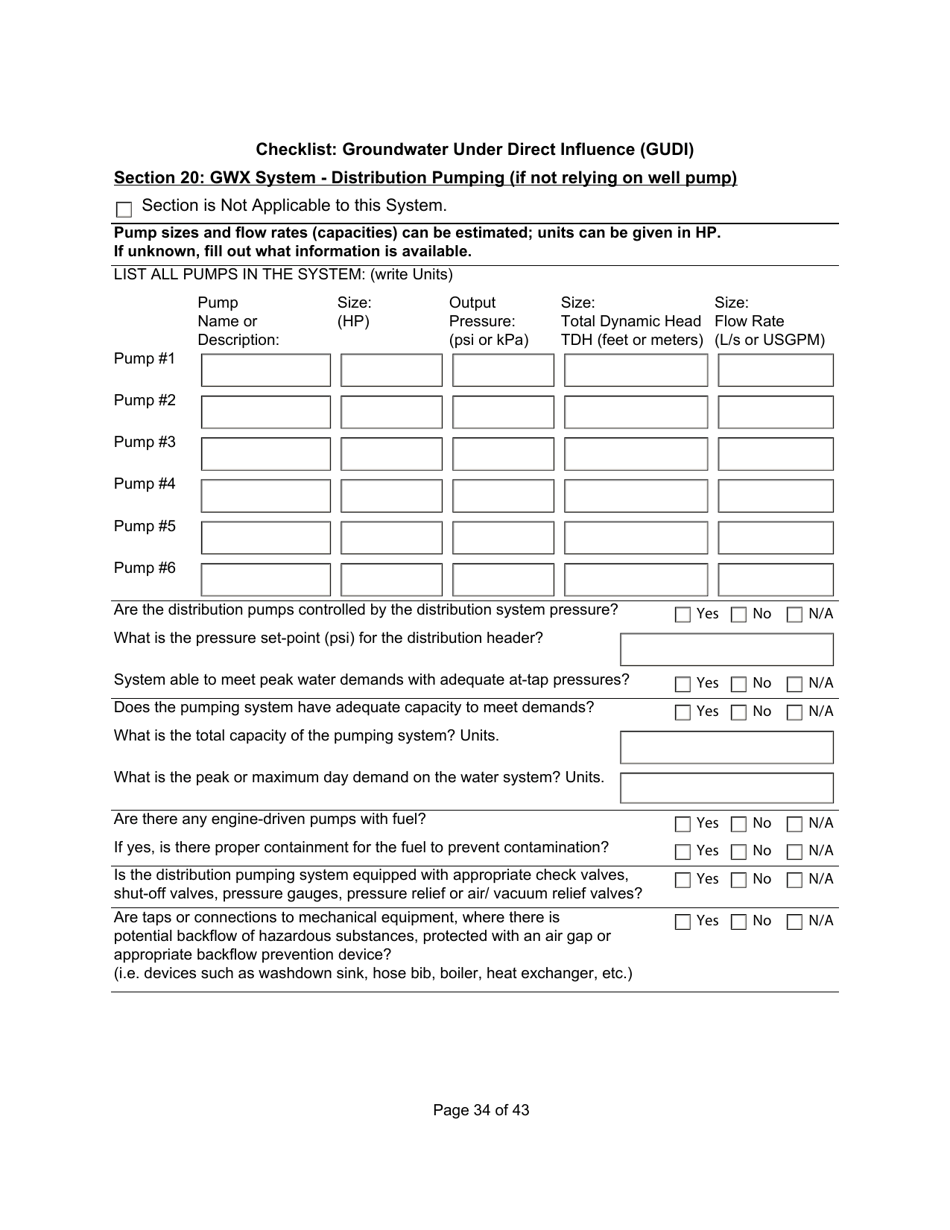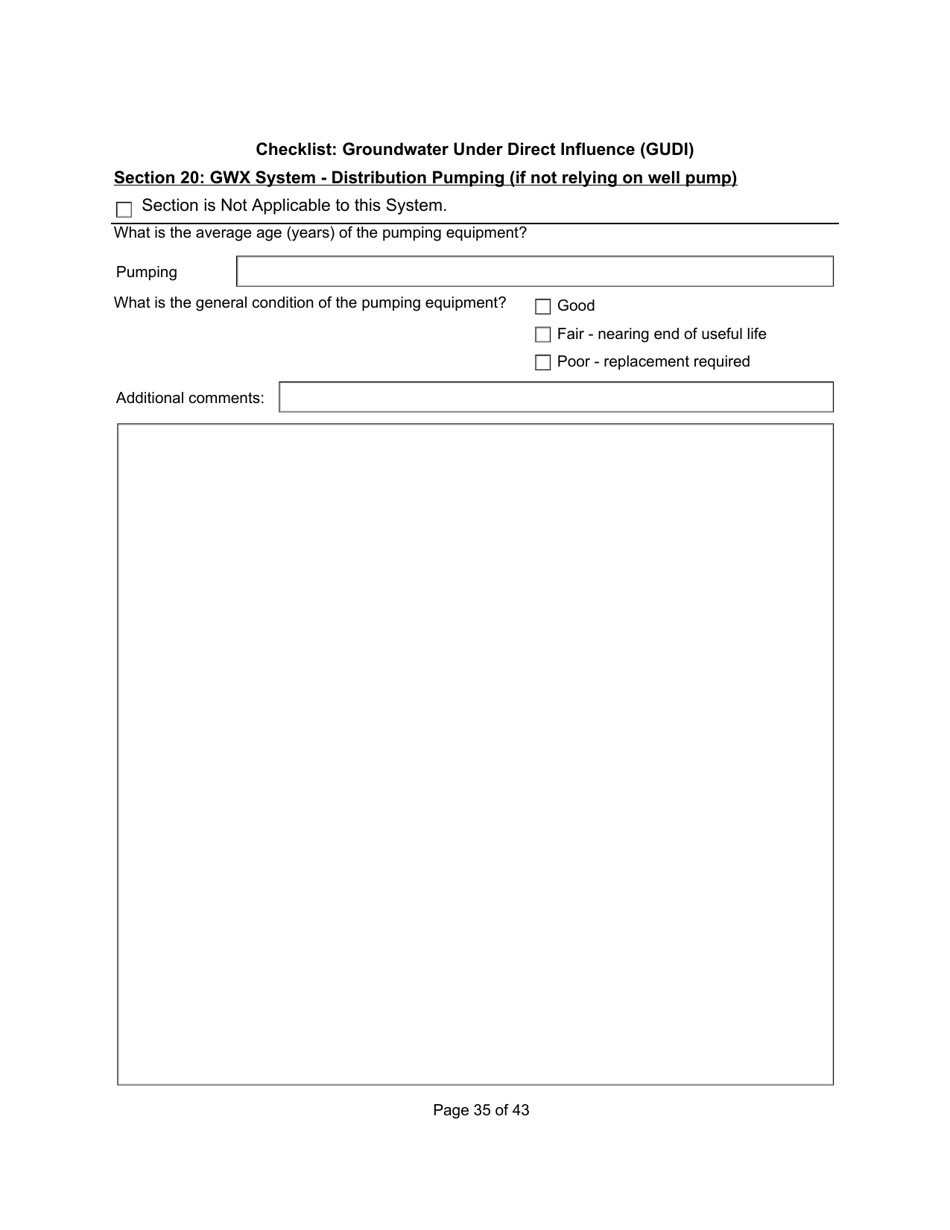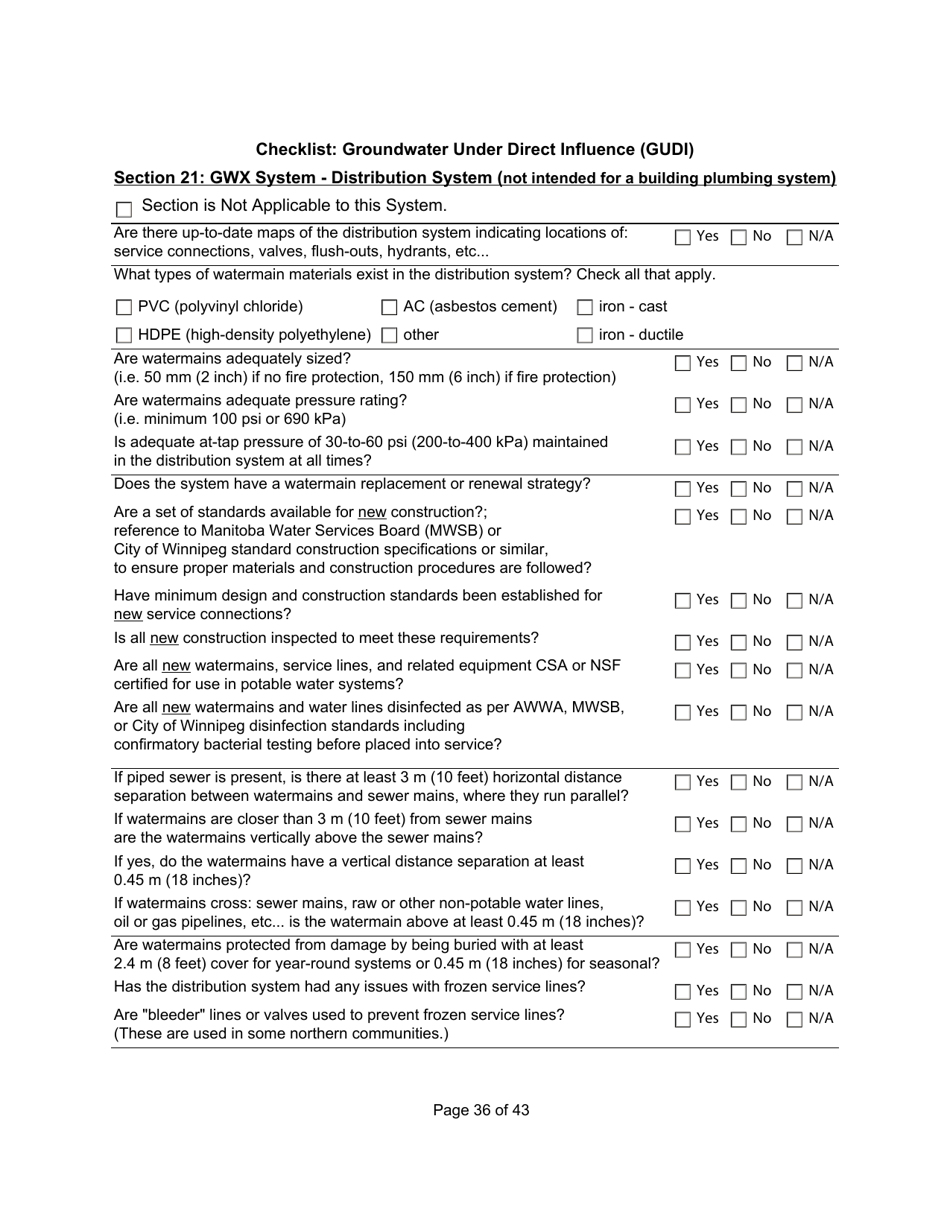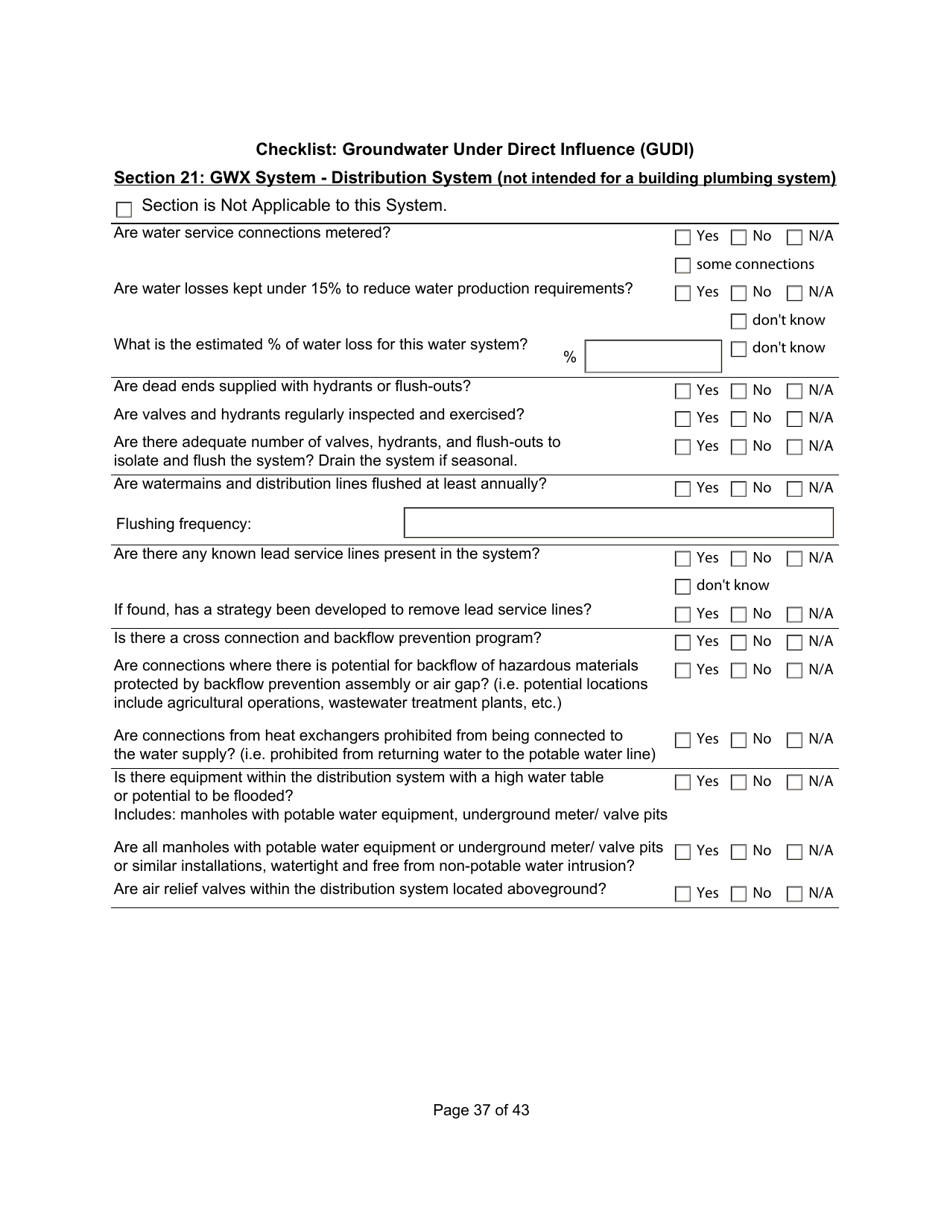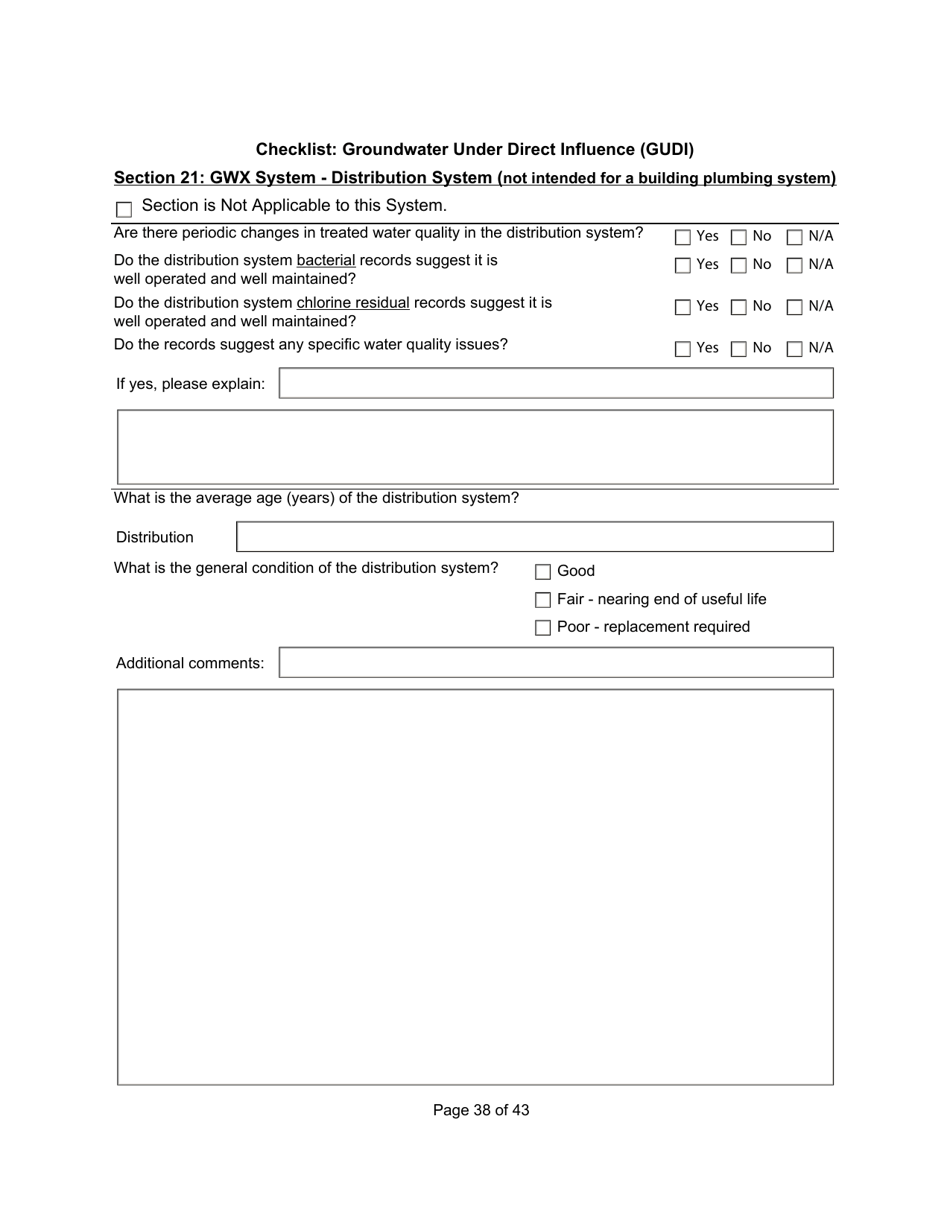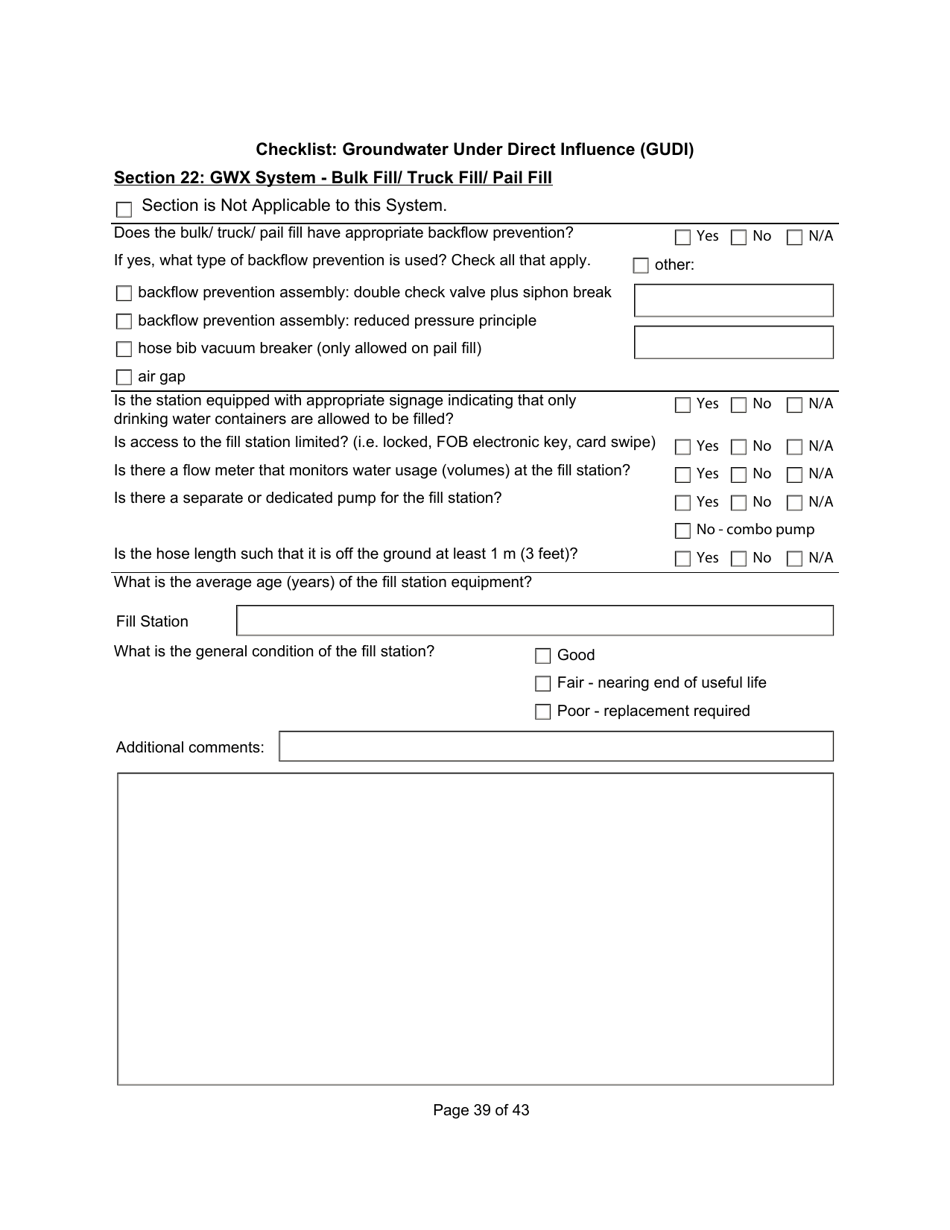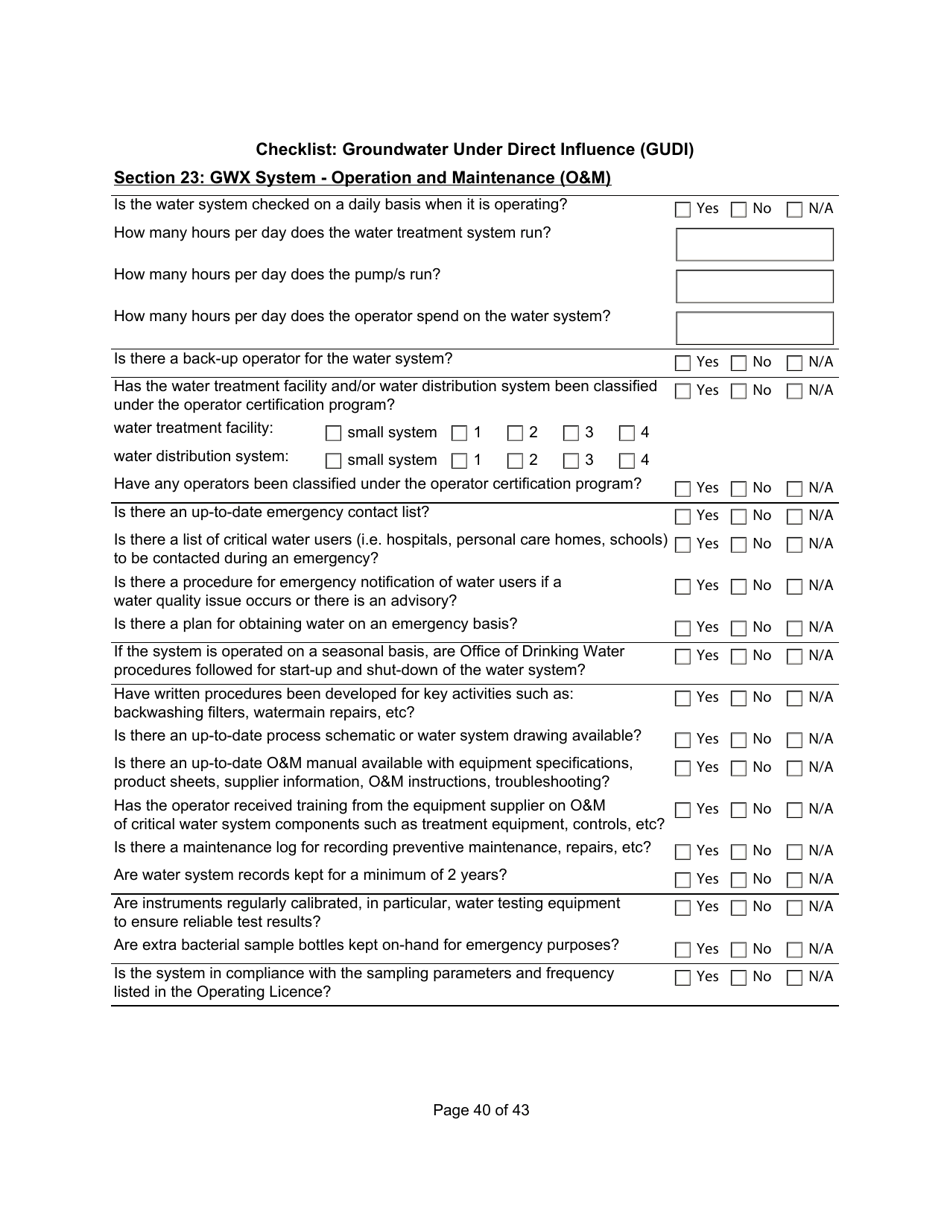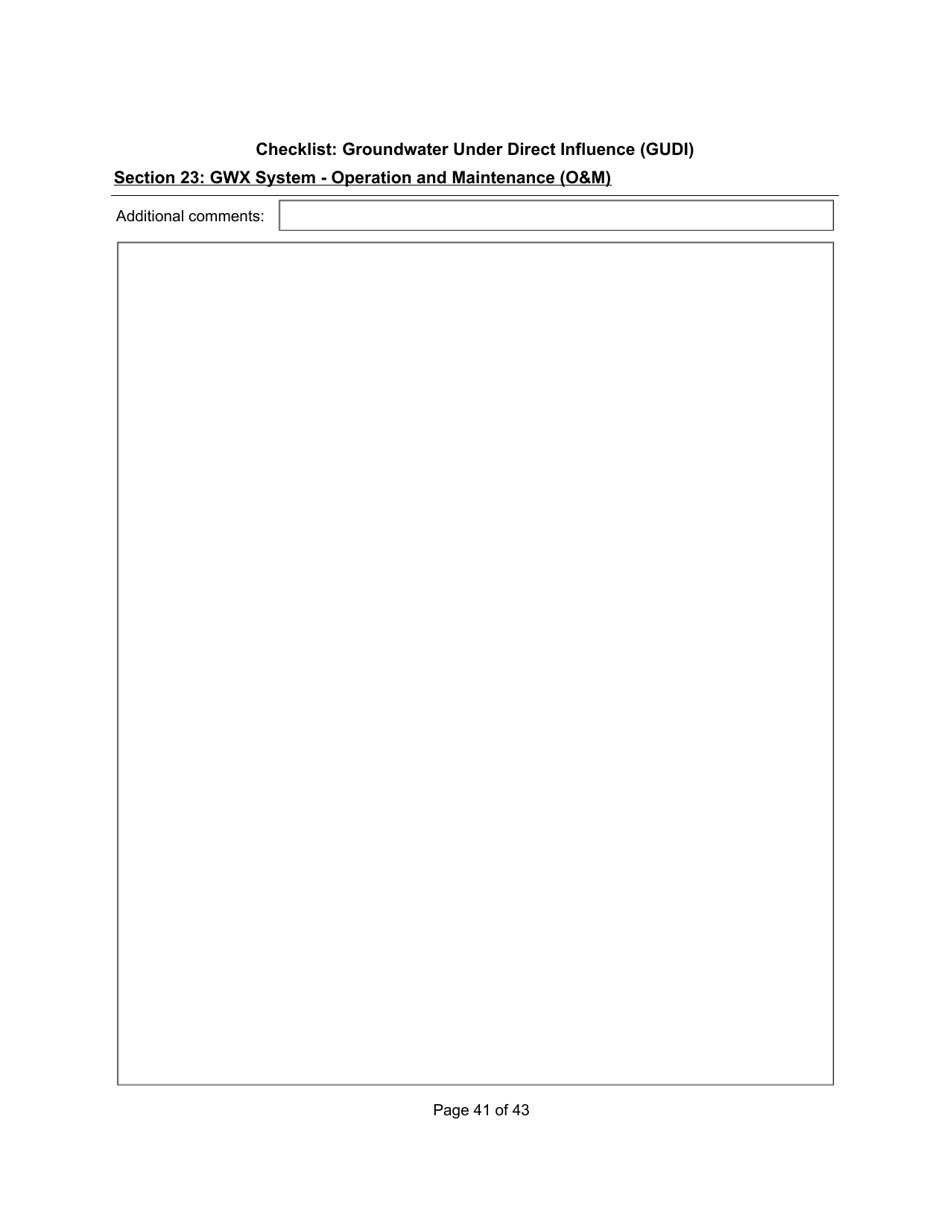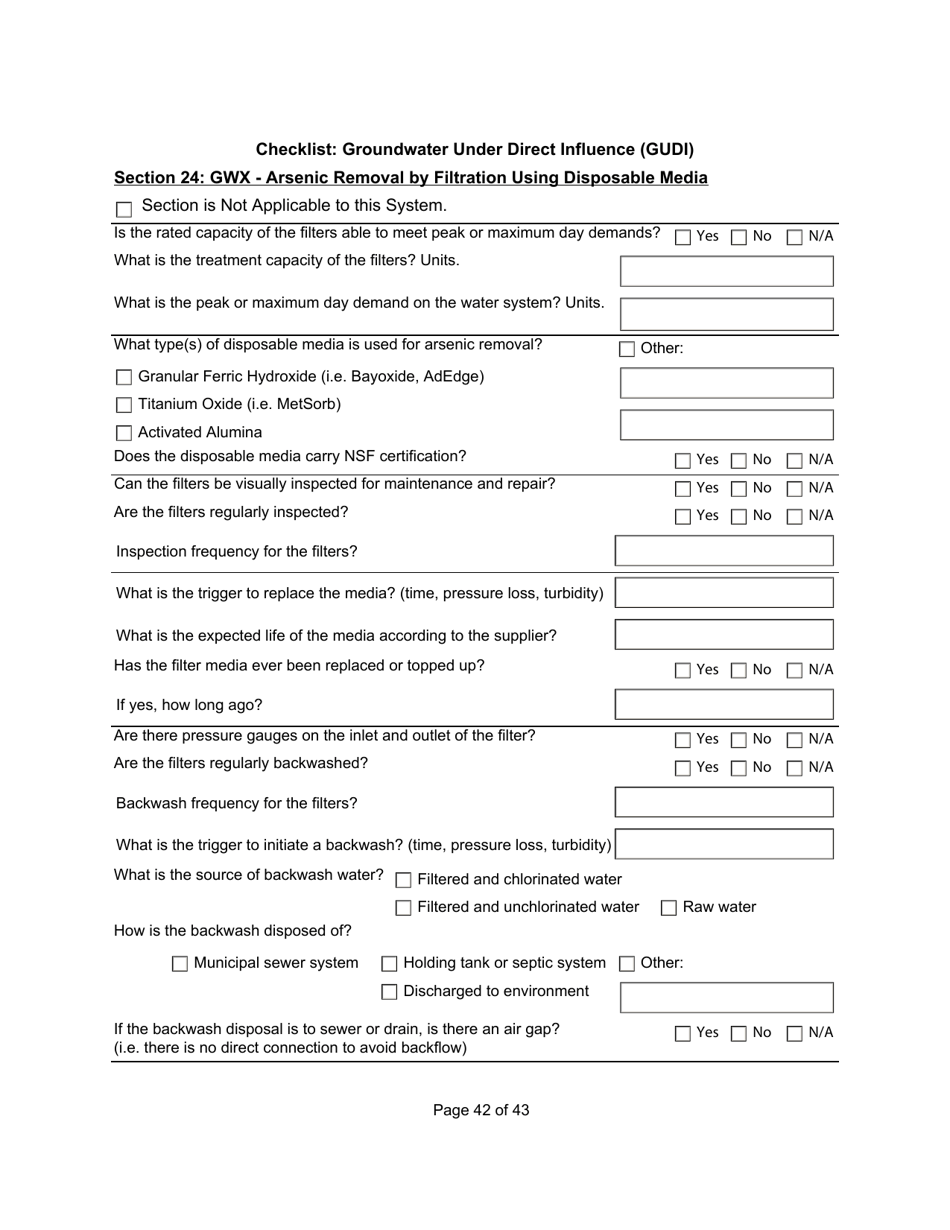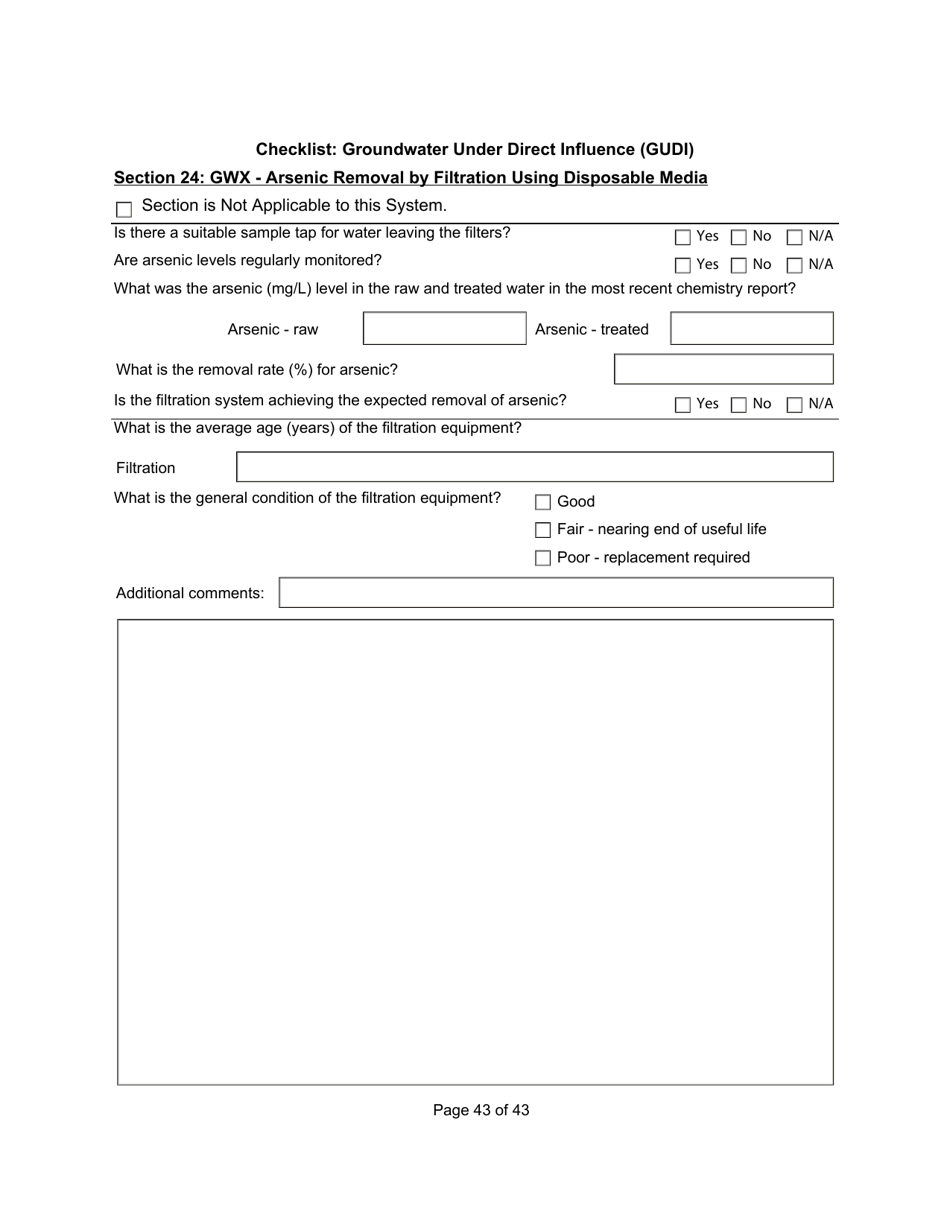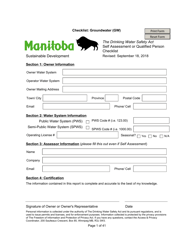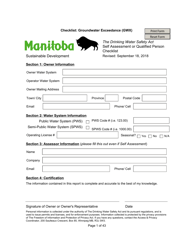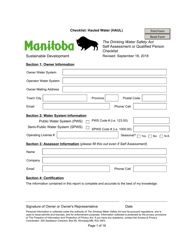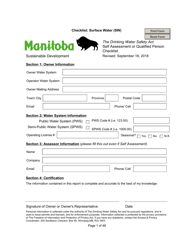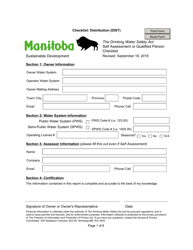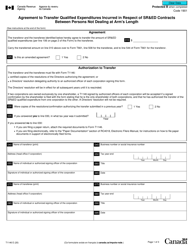Qualified Person Assessment or Self-assessment - Checklist: Groundwater Under Direct Influence (Gudi) - Manitoba, Canada
The Qualified Person Assessment or Self-assessment - Checklist: Groundwater Under Direct Influence (GUDI) in Manitoba, Canada is used to evaluate the impact and potential risks associated with groundwater under direct influence. It helps assess whether certain activities comply with the regulations and guidelines set by the Manitoba government to protect groundwater quality.
The Qualified Person files the assessment or self-assessment checklist for Groundwater Under Direct Influence (GUDI) in Manitoba, Canada.
FAQ
Q: What is a Groundwater Under Direct Influence (GUDI) assessment?
A: A Groundwater Under Direct Influence (GUDI) assessment is an evaluation of the potential impact of surface contamination on the quality of groundwater.
Q: Who conducts the GUDI assessment?
A: The GUDI assessment is typically conducted by a qualified person who specializes in assessing groundwater quality and contamination risks.
Q: What is the purpose of a GUDI assessment?
A: The purpose of a GUDI assessment is to determine if a site's groundwater is under the direct influence of surface contamination and to evaluate the risks associated with this influence.
Q: What are some factors considered in a GUDI assessment?
A: Some factors considered in a GUDI assessment include the proximity of potential sources of contamination, local geology and hydrogeology, and the presence of monitoring wells and groundwater monitoring data.
Q: Why is a GUDI assessment important?
A: A GUDI assessment is important to identify potential risks to groundwater quality and to ensure the protection of drinking water sources and the environment.
Q: Who can rely on the findings of a GUDI assessment?
A: The findings of a GUDI assessment can be relied upon by regulatory agencies, landowners, developers, and other stakeholders involved in land use planning and environmental protection.
